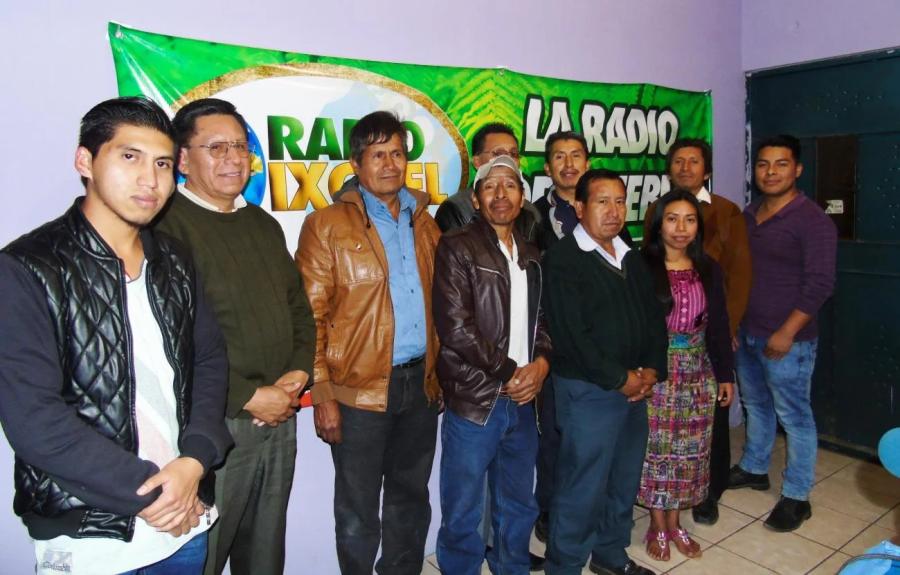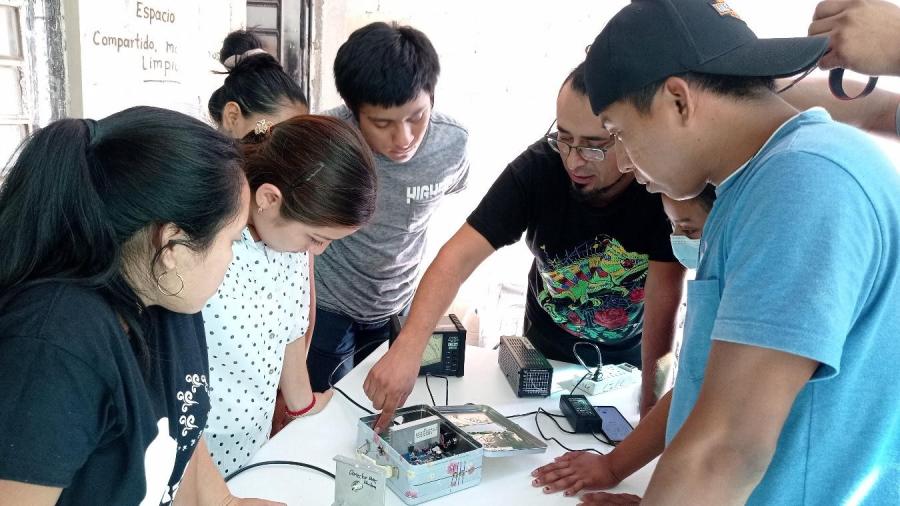Cultural Survival’s Guatemala Community Radio Project (see the summer 2005 issue for a full description) was officially launched in January when representatives of six community radio station associations and their larger umbrella organization, Consejo Guatemalteco de Comunicación Comunitaria (CGCC), signed an agreement with Cultural Survival. The agreement establishes a five-year partnership between the organizations and lays out four major goals: legalize the stations, improve their content, upgrade broadcast equipment, and increase training for station personnel. The agreement assumes that at the end of its five-year term the 250 stations that are members of the associations will be self-sufficient.
Although these community radio stations are tiny and homegrown, they reach some seven million listeners—in a nation where the majority of the population is indigenous. They are an essential tool for maintaining indigenous rights and culture. That principle was recognized in the peace accords that ended 10 years of civil war in Guatemala. Among other things, the accords promised the establishment of community communication media. To date, the country’s telecommunication law has no such provision, and without that the government cannot officially assign bandwidth to the radio stations. Working toward new telecommunications legislation is one of the four goals for the partnership.
The second goal—improving the content—is perhaps the most significant element of the partnership. Most of the community radio stations in Guatemala have been put together by local people who have widely varying degrees of broadcast expertise. Thus, while the content each station creates may be helpful to its listeners, it is not as effective as it could be. Also, the stations now have no way to share their content with each other, nor do they have access to the enormous amount
of international material available through the Internet.
To improve all these elements, the Guatemala Community Radio Project is hiring a full-time content coordinator and two producers, all with backgrounds in radio broadcasting. Beginning in March, this team will sort through local, national, and international sources and work with association representatives to select the best content, download prerecorded material, and recording audio content from written sources. They will then burn the selected content onto CDs and distribute it to the radio stations. Once a month they will meet with member station representatives for feedback and evaluation. Multilingual volunteers at the stations will translate the material into local languages.
The last two goals—upgrading equipment and training station personnel—are intended to support the content goal by helping stations to produce better local content and reach their audiences more effectively.
“All this is a means to an end,” says Mark Camp, Cultural Survival’s director of operations and the point person for the Guatemala Community Radio Project. “Remember that Guatemala is one of only two Western Hemisphere countries in which indigenous people are a majority of the population. It also has a 500-year history of violence, with its civil war ending only 10 years ago. Now there is fledgling peace and democracy taking hold. What’s most important for democracy? An informed populace that can participate in the body politic. People need news and to hear what’s happening so they can participate. Because Guatemala has 25 languages, information needs to be local and in local languages. Not everybody can read, but everybody can listen to a radio.”


